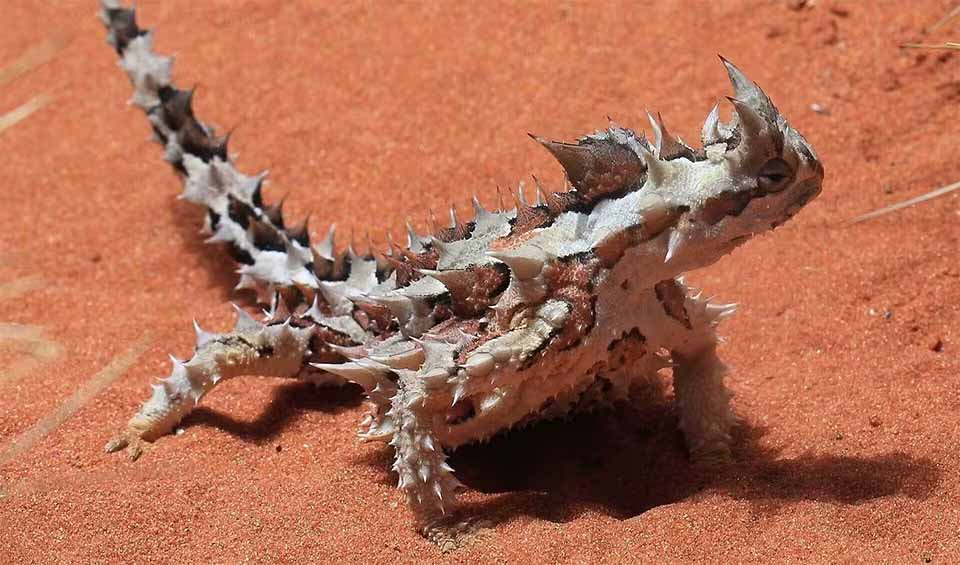A reptile that truly embodies the term ‘unique.’ Native to the arid deserts of Australia, this lizard has evolved an array of specialized adaptations that have captivated biologists and nature enthusiasts alike. Its body is armored with an array of conical spines that cover it entirely, from the crown of its head, across its back, and down to its limbs. These spines testify to the lizard’s distinctive defense mechanisms, even above its eyes.
Despite its formidable appearance, the thorny devil is one of the most placid reptiles known. It is not aggressive and poses no threat to humans or larger animals. Its diet is remarkably specialized; it feeds exclusively on ants. An adult thorny devil can consume an astonishing number of ants, ranging from 600 to 2,500 each day, playing a crucial role in regulating ant populations and thus influencing the desert ecosystem.
The thorny devil’s approach to hydration is as fascinating as its diet. In the parched environments it inhabits, standing water is a rare sight. To overcome this, the lizard has developed a skin that can absorb water from any source it comes into contact with—be it morning dew, rain, or moisture from the soil. The water navigates through grooves between its spines, drawn by capillary action straight to the corners of its mouth, a process that allows the thorny devil to drink from the moisture present in its environment effectively.
Distribution
 Australia
AustraliaDid you know?
- Thorny devils can eat up to 3,000 ants at a time.
- Thorny devils can inflate their chests with air to appear bigger for predators and scare them as it makes it harder to swallow them.
Anything we've missed?
Help us improve this page by suggesting edits. Glory never dies!
Suggest an editGet to know me
Terrestrial / Aquatic
Altricial / Precocial
Polygamous / Monogamous
Dimorphic (size) / Monomorphic
Active: Diurnal / Nocturnal
Social behavior: Solitary / Pack / Herd
Diet: Carnivore / Herbivore / Omnivore / Piscivorous / Insectivore
Migratory: Yes / No
Domesticated: Yes / No
Dangerous: Yes / No




